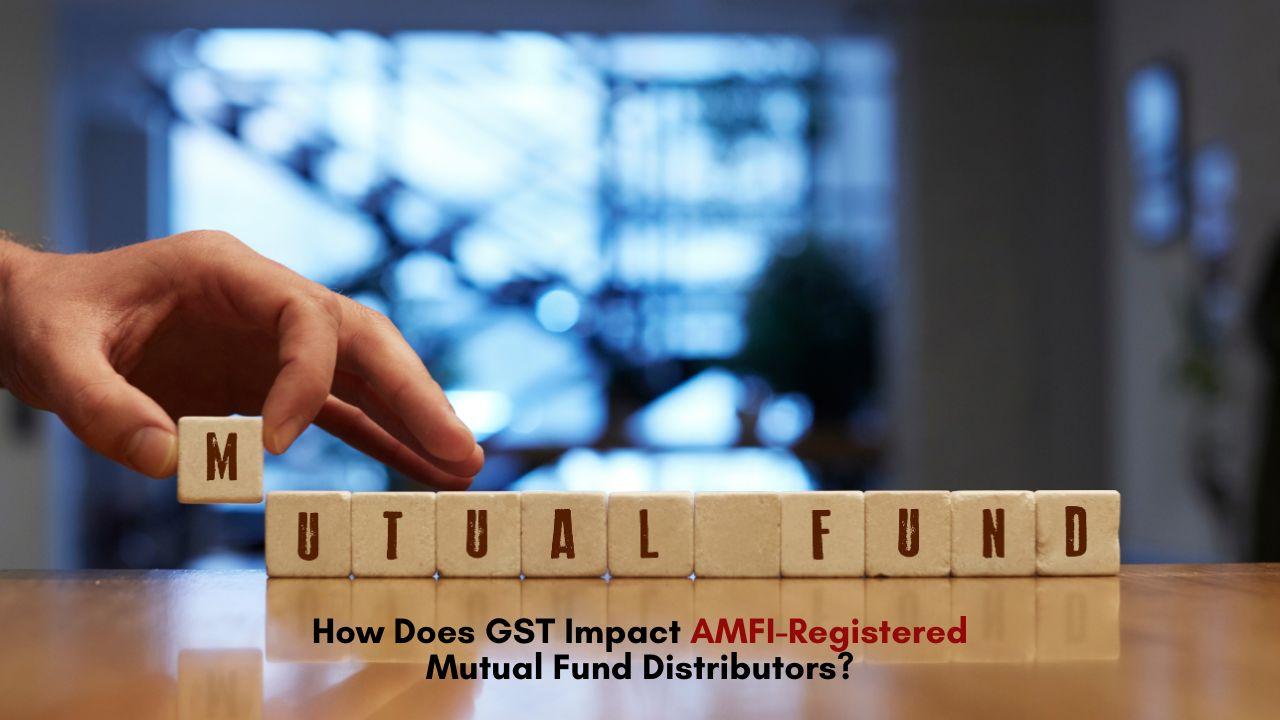Introduction
The introduction of the Goods and Services Tax (GST) has transformed the financial sector in India, including mutual fund distribution. Mutual fund distributors registered with the Association of Mutual Funds in India (AMFI) play a vital role in helping investors navigate fund investments. However, they must also comply with tax regulations, including GST. Understanding how GST affects their operations is crucial for maintaining compliance and optimizing business strategies.
Understanding AMFI Registration and Its Importance
AMFI registration is a mandatory requirement for individuals and firms that distribute mutual funds in India. It ensures that distributors adhere to regulatory guidelines and maintain transparency in financial dealings. With AMFI distributor registration, professionals gain credibility in the industry, allowing them to offer investment services to clients.
However, being an AMFI-registered distributor also means handling tax obligations, including GST. The taxation system applies to various financial services, and mutual fund distributors must understand how GST impacts their earnings, commission structures, and compliance requirements.
Applicability of GST on Mutual Fund Distributors
GST applies to the services provided by mutual fund distributors, primarily on the commissions earned. Distributors act as intermediaries between mutual fund houses and investors, earning commissions based on the investments made by their clients. Since these services fall under the category of financial services, they are subject to GST.
Registered distributors must charge GST on their commissions and remit the collected tax to the government. The current GST rate applicable to mutual fund distribution services is 18%. Distributors earning above the specified turnover threshold must register for GST and comply with the associated filing requirements.
Impact of GST on Commission Earnings
One of the significant ways GST affects AMFI-registered distributors is through taxation on their commissions. Before GST, service tax was levied at a lower rate. With the introduction of GST, the tax rate increased, affecting the net income of distributors.
For instance, if a distributor earns a commission of ₹1,00,000, an 18% GST is applicable, amounting to ₹18,000. This means the distributor must collect and remit this amount to the government. While the burden of GST is typically passed on to the client or fund house, it still impacts cash flow and revenue management.
GST Registration Requirements for Mutual Fund Distributors
Mutual fund distributors who exceed the prescribed turnover limit must complete payment gateway registration for GST compliance. This ensures that all transactions are legally recorded and that distributors can claim input tax credits on eligible expenses.
The GST registration process requires providing business details, PAN information, and bank account details. Once registered, distributors must file GST returns periodically to report their earnings and tax liabilities. Non-compliance with GST registration and return filing can result in penalties, affecting business operations.
Role of GST Advisory Services in Compliance
Understanding and managing GST obligations can be challenging, especially for independent mutual fund distributors. Engaging GST advisory services can simplify compliance by offering guidance on tax calculations, return filing, and claimable input tax credits.
Expert assistance in GST advisory and compliance ensures that distributors avoid penalties and streamline their financial operations. By leveraging professional support, AMFI-registered distributors can focus on growing their business while staying compliant with tax regulations.
Payment Processing and GST Compliance
Distributors who receive payments through digital channels may require a payment gateway license for seamless transactions. A licensed payment gateway ensures secure fund transfers while maintaining compliance with GST regulations.
Additionally, distributors using online payment processing systems must account for GST while accepting commissions. Proper documentation and tax filing practices ensure smooth financial operations without compliance risks.
Claiming Input Tax Credits for Business Expenses
One of the benefits of GST for mutual fund distributors is the ability to claim input tax credits. Distributors incur various business expenses, including office rent, digital marketing, and professional services. If GST is paid on these expenses, distributors can claim a credit to offset their tax liabilities.
To maximize input tax credits, distributors must maintain proper invoices and records of all transactions. This reduces the overall tax burden and improves financial efficiency.
Challenges Faced by Mutual Fund Distributors Under GST
Despite its benefits, GST also presents challenges for AMFI-registered distributors. Some of the common difficulties include:
- Increased compliance burden due to multiple GST filings.
- Cash flow impact from upfront GST payments on commissions.
- Complexities in input tax credit claims.
- Need for proper accounting and record-keeping.
To address these challenges, distributors must stay updated on tax regulations and seek expert advice when needed. Proper planning and adherence to tax deadlines can prevent unnecessary penalties and legal issues.
Managing GST obligations can be time-consuming, especially for mutual fund distributors focused on growing their client base. Corpbiz provides expert GST advisory and compliance services to help AMFI-registered distributors easily navigate tax regulations.
From GST registration and return filing to payment gateway registration and tax optimization, Corpbiz offers end-to-end support. With professional guidance, distributors can focus on building their business while ensuring full compliance with GST laws.
Conclusion
GST has a significant impact on AMFI-registered mutual fund distributors, affecting commission earnings, compliance requirements, and financial planning. Understanding GST obligations and leveraging expert GST advisory services can help distributors manage their tax responsibilities efficiently. By ensuring timely GST registration and compliance, distributors can optimize their business operations and maintain a strong financial position in the market.

